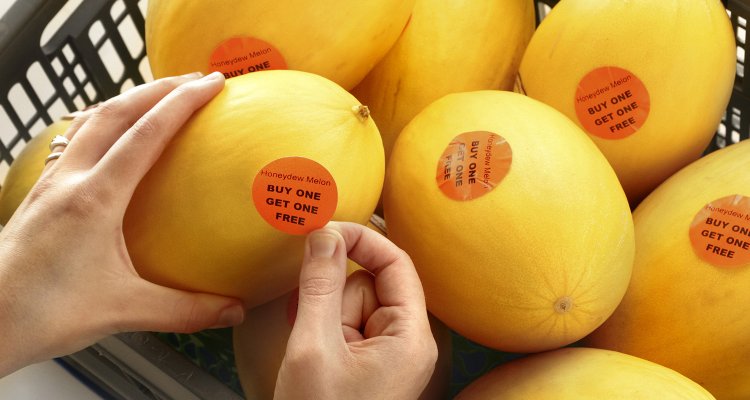
Blog
Buy-one-get-one offers do not induce food waste
It seemed so obvious. People waste food because they buy more than they need. So retail promotions that stimulate us to buy even more, should lead to an increase in household food waste. Yet, our research shows that the opposite happens: we waste less of those product that we purchase on multi-unit promotions.
What happens when you see a multi-unit offer in the store, such as buy-one-get-one-free? You may feel tempted to buy it, but somewhere in the back of your mind, you realize that there is a risk that you will waste the extra product that you normally would not have bought. Now, nobody wants to waste food. So chances are that you will think of ways to ensure that the product does not end up in the bin. Maybe you can freeze it, or you can include it in a dish. Your concern about possibly wasting the product that you buy extra, leads you to take precautions, and ultimately makes it less likely that you waste the food.
The studies that have shown this effect were conducted by Arjen van Lin, Aylin Aydinli, Marco Bertini, Julia von Schuckmann and myself (Erica van Herpen). We combined a field study using actual purchases made by a panel of consumers with online experiments.
In the field study, eight frequently purchased perishable foods were examined when they were on multi-unit promotion, price promotion, or sold at regular price. Customers who had bought the product were contacted and asked what happened to this food product. Results showed that when consumer had bought a product on a multi-unit deal, they reported wasting less, but only when the quantity that they purchased was larger than what they would usually buy.
We subsequently delved deeper into what causes these effect, in an online experiment. Results support our proposed underlying process: the multi-buy deal triggers concern about food waste, which in turn encourages waste prevention (freezing, consuming faster, consuming more). A second experiment explores the question for which products this concern about food waste is more (or less) likely to be triggered.
This research challenges our ideas of how sales promotions affect food waste and shows that we need to carefully examine consumer responses if we are to give sound advice to retailers on how they can induce consumers to waste less.